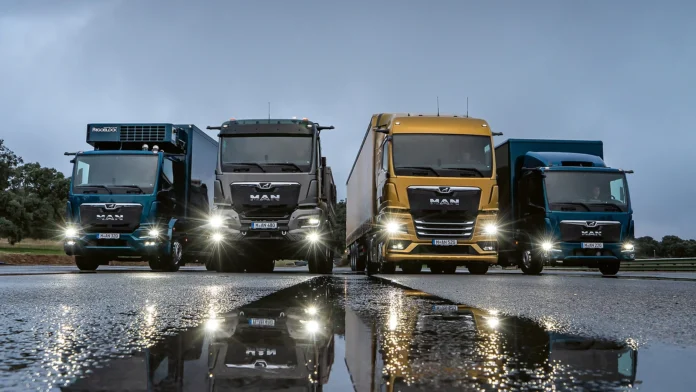Virtually all manufacturers in the auto industry have committed to fighting climate change by reducing carbon dioxide emissions from their products (as well as in other areas of their business). The process of ‘decarbonising’ towards carbon-neutrality within a few decades sees various approaches being taken.
While there was initially a focus on switching to electric power and phasing out internal combustion engines (ICE), it is now clear that the time-frame is not long enough and consumers are not yet ready to switch so quickly. In more advanced countries, the change to EVs is faster but in developing countries, economic and charging infrastructure issues prevent a quick transition.
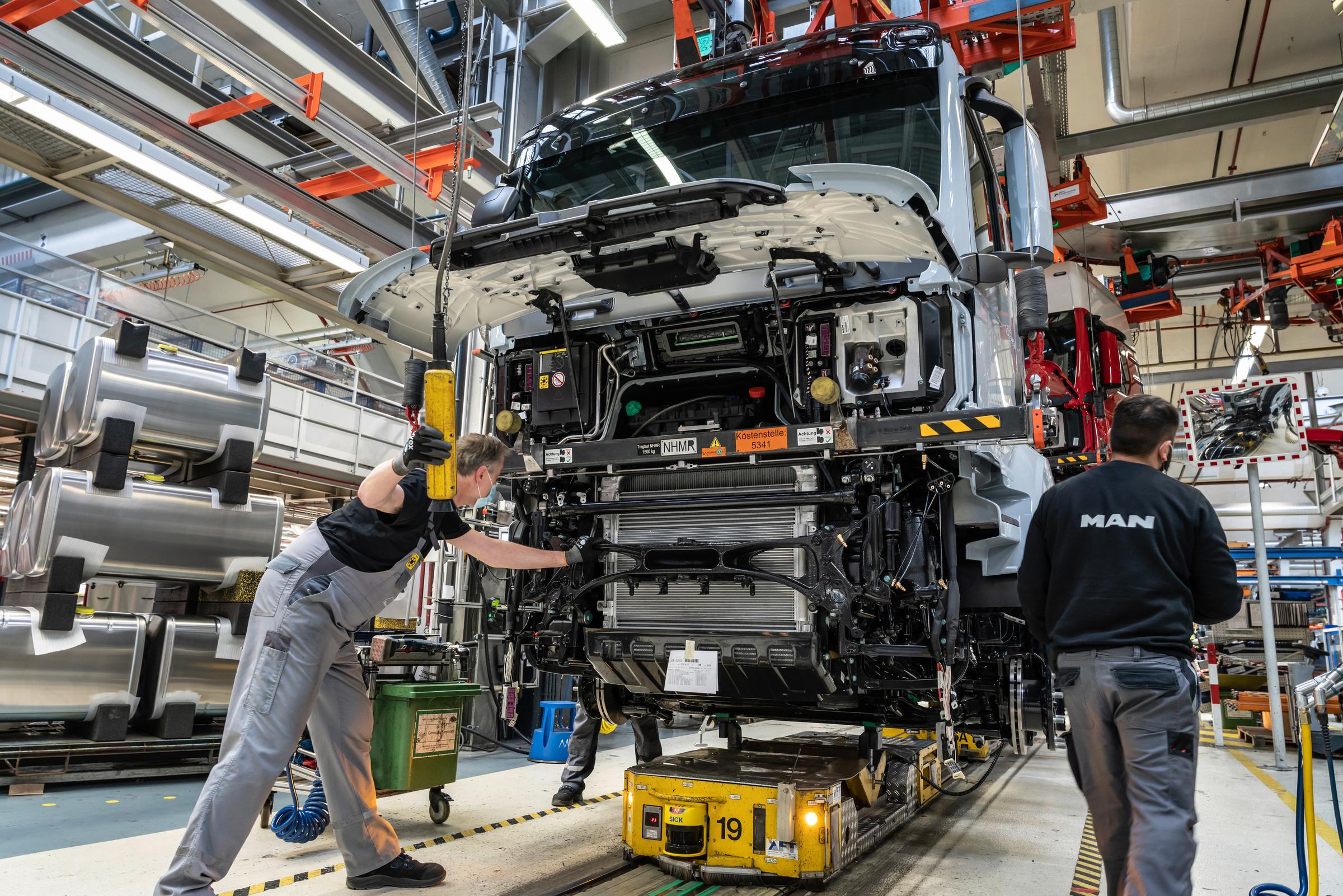
For this reason, many manufacturers have an approach whereby multiple powertrain options are offered (Toyota calls their approach ‘multi-pathway’) to suit the needs of customers in different countries and regions. These options range from more efficient ICE to advanced technologies using hydrogen fuel cells.
In the commercial vehicle industry, it is even more important to offer multiple options as commercial vehicles operate in many developing markets and also in remote areas where charging may not be possible. Liquid fuel stations already exist all over the planet and even in jungles but charging stations will take time to reach the same coverage.
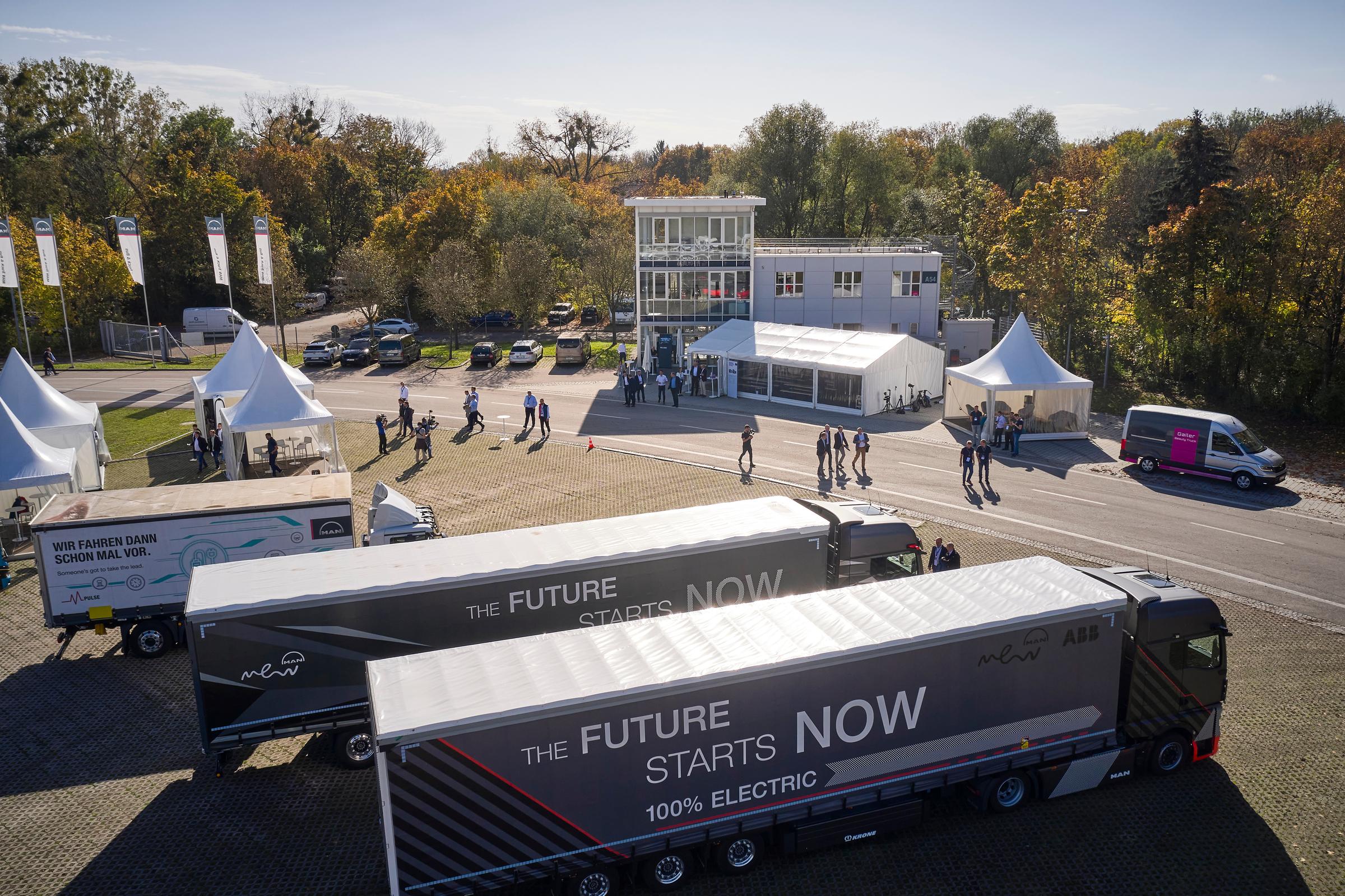
MAN Truck & Bus therefore continues to offer its vehicles with diesel engines but also has a range of electric and hydrogen powertrains for road freight transport. “Even though the transition to CO2-free freight transport is characterised by several drive technologies, our focus is clearly on electromobility as the main drive technology. In future, we will be producing combustion engine and electric trucks on the same production line in order to be able to react flexibly to the shift in demand towards electric trucks. However, for the drive revolution to succeed, the expansion of the charging infrastructure must be an absolute priority for politicians, infrastructure operators and manufacturers,” said Alexander Vlaskamp, CEO of MAN Truck & Bus.
For the demand for conventional combustion-engine trucks that continues to exist in the technology transition to zero-emission drives, MAN has a highly efficient engine for its TGX and TGS series semi-trailer tractors with the new Power Lion driveline.
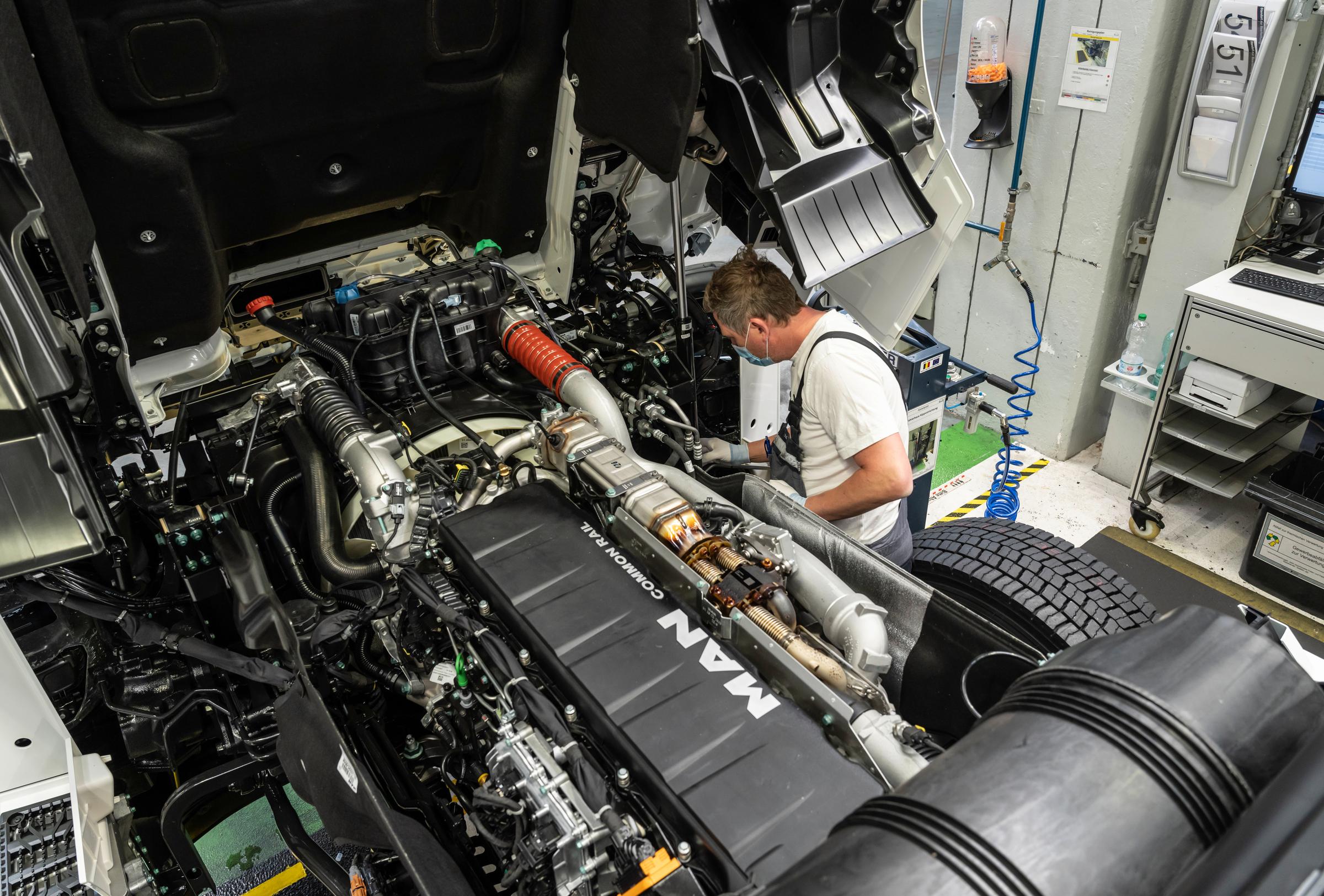
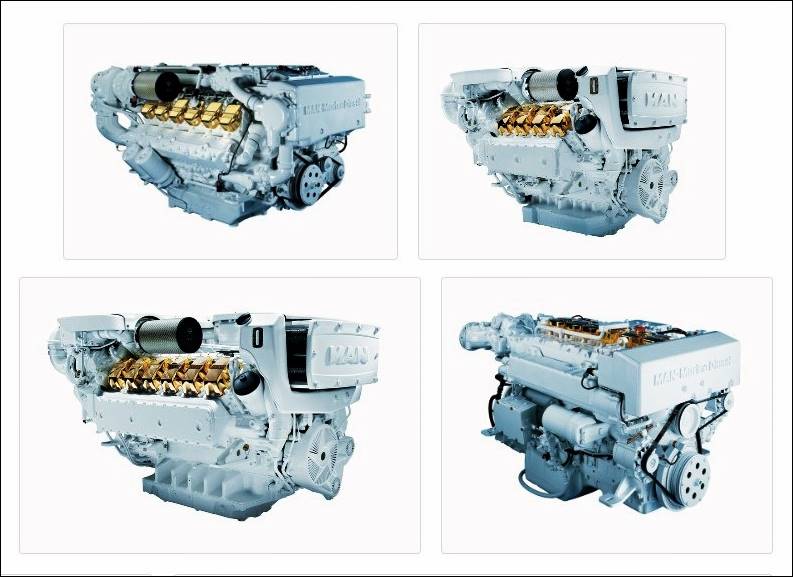
The diesel drive will continue to play an important role throughout the entire transformation until it is completely replaced. MAN has therefore made it significantly more efficient, economical and lower in CO2 with the new D30 engine as one example.
Based on the combined technology expertise of the TRATON GROUP, the engine developed specifically for MAN vehicles achieves a considerable further fuel reduction and thus a CO2 reduction of up to 3.7% with the new MAN TipMatic 14 gearbox, a new brake generation and aerodynamic measures. In countries with a CO2 toll, it will also be able to offer further savings in kilometre costs by being classified into very favourable toll classes.
The new MAN eTruck, with an electric powertrain, offers over a million configuration variants with its modular battery concept, numerous wheelbases, cabs, PTOs and industry equipment. Its preparation for the upcoming megawatt charging standard MCS with up to 1,000 kW enables recharging within the driver’s driving break. This enables a daily range of up to 800 kms, which is also sufficient for typical long-haul applications.
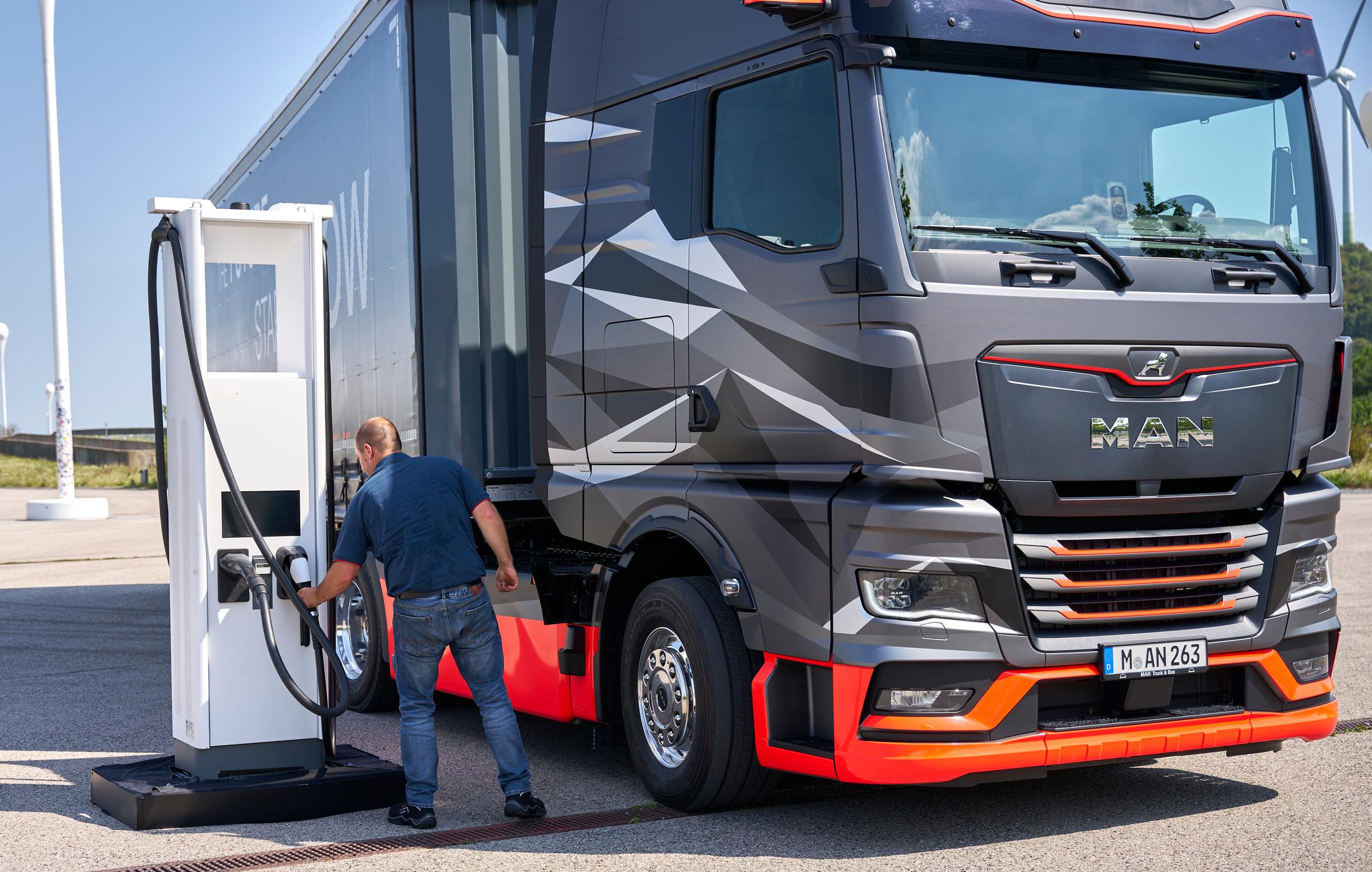
By 2030, every second MAN truck registered in Europe should be battery-electric. Recently, the charging infrastructure joint venture Milence, in which MAN is part of the TRATON GROUP alongside Daimler Truck and Volvo Trucks, opened one of the first large truck charging parks in the Port of Antwerp.
A total of 1,700 charging points are to be created on the initiative of the manufacturers in the coming years. A total of 50,000 will be required by 2030 for the steadily increasing number of electric trucks. MAN is also working on the electrification of its own service network.
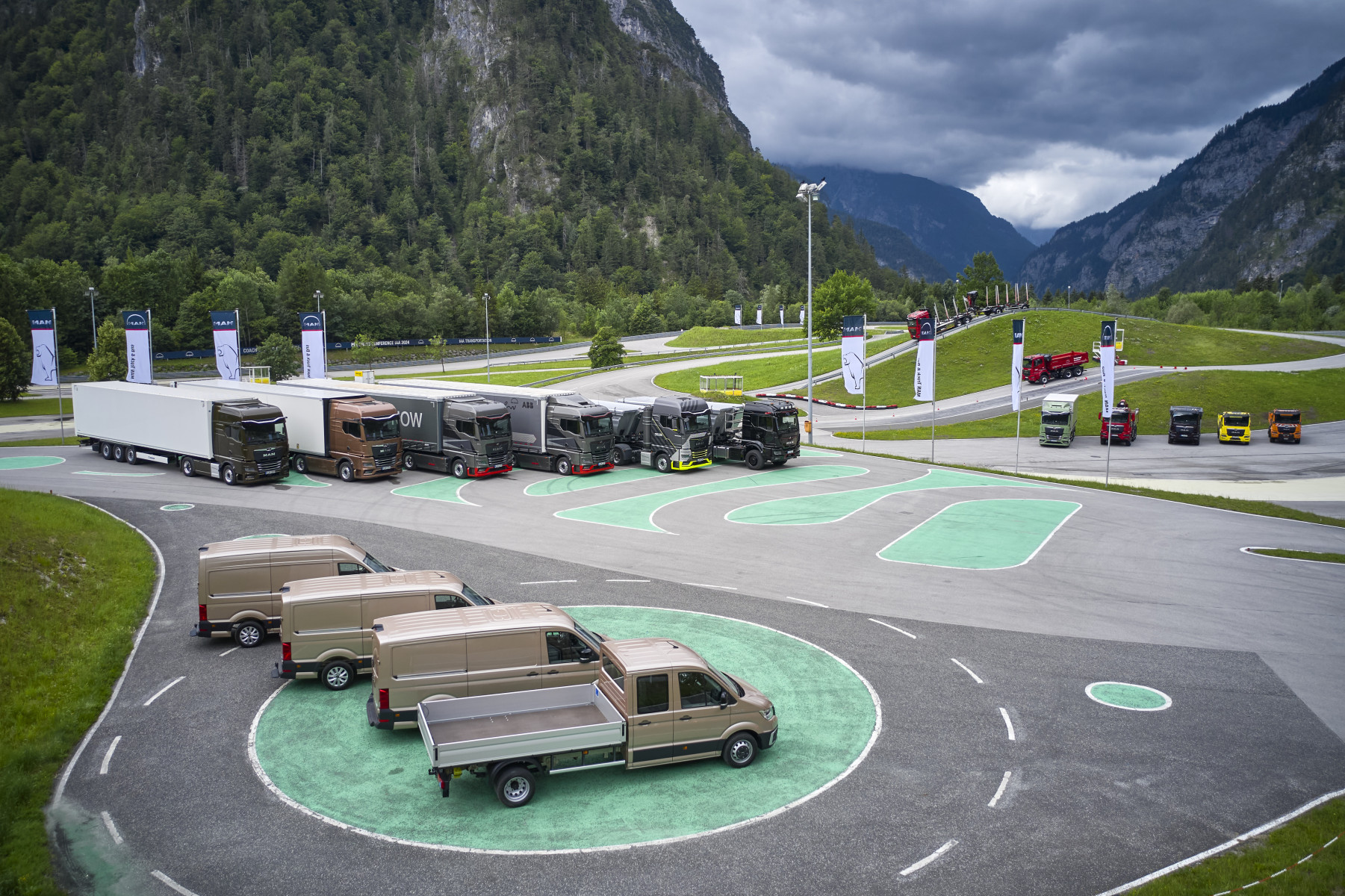
MAN is the first manufacturer to introduce trucks with hydrogen combustion engines. In parallel with the ramp-up of electromobility, the truckmaker is working on hydrogen technology as a complementary zero-emission solution for special applications such as heavy-duty transport or for applications where charging infrastructure is difficult to implement.

During the test drives in Austria this week, MAN is demonstrating the prototype of a hydrogen-combustion truck. This will be delivered as an MAN hTGX in a small volume of initially 200 vehicles from 2025 to customers in Germany, the Netherlands, Norway, Iceland and selected non-European countries for the first time. Just like its electric counterpart, it meets the strict criteria of a zero-emission vehicle.
“The hydrogen combustion engine can be a useful addition for special applications, as can the fuel cell drive, which is currently still under development,” said Mr. Vlaskamp.
MAN Truck & Bus conducts first autonomous truck test on autobahn
